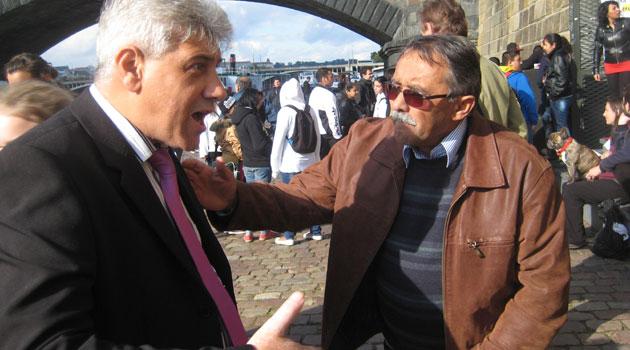Romani activist seeks seat on Institute for the Study of Totalitarian Regimes

Čeněk Růžička, the chair of the Committee for the Redress of the Roma Holocaust (Výbor pro odškodnění romského holocaustu) is one of the candidates for a seat on the board of the Institute for the Study of Totalitarian Regimes (Ústav pro studium totalitních režimů – ÚSTR). The Czech Senate will choose the institute’s board members during a session in December. A total of 33 candidates have applied.
"For the time being, the Romani genocide has not been researched much, and I would like to bring it to the center of attention. I would also have access to information there that is not yet generally known," Růžička told news server Romea.cz when asked why he was seeking a seat on the board.
Růžička has been involved in researching the Holocaust and seeking compensation for its victims for decades. He officially began his work immediately after the changes in November 1989.
Růžička’s parents, who did not meet one another until after the war, each spent time in several concentration camps. Almost all of the members of their extended families – a total of about 25 people – perished in concentration camps as well. "Those who passed away included my mother’s first son, my half-brother. Mom was completely alone, she was the only one to escape. It was a big trauma that she bore like an enormous cross until her death. She complained that she had no one, no one who would stand up for her, which greatly touched me as her oldest son," Růžička recalls.
His mother returned from the concentration camps with tuberculosis. Her first husband had been arrested for collaborating with a resistance group. "The Nazis took him away and it was as if the earth had swallowed him up. It wasn’t until after the war that we found out he had been taken to the concentration camp at Auschwitz, then to Buchenwald and then to another camp where he perished," Růžička says. On his father’s side, the entire extended family was also in the concentration camps. Only four men escaped, including Růžička’s father and uncle.
Besides Růžička, 32 other candidates are seeking a seat on the board. Some of the well-known figures are, for example, the clergyman and former Czech Senator Zdeněk Bárta; chair of the Confederation of Political Prisoners (Konfederace politických vězňů) Naděžda Kavalírová; chair of the National Council for People with Disabilities (Národní rada osob se zdravotním postižením) Václav Krása; director of the Post Bellum civic association Mikuláš Kroupa; historian Alena Míšková; former dissident Petr Pospíchal; Karel Strachota of the People in Need organization, which runs the One World documentary film festival; and Monika MacDonagh-Pajerová, who was one of the natural student authorities during the Velvet Revolution.